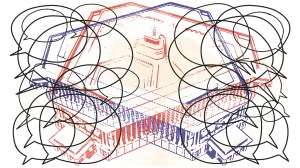Cycle of life
After staging Safar in January, the Theatre Academy will once again present the play at the Bharat Natya Mandir today.Converting playwrig...

After staging Safar in January, the Theatre Academy will once again present the play at the Bharat Natya Mandir today.
Converting playwright Vijay Tendulkar8217;s hard-hitting plays into theatrical productions is not easy, and when taken up by amateur artists, there is always apprehension about how faithfully the presentation will bring out the play8217;s aspects. But the academy8217;s performance last month struck the right chord.
In Safar Journey, Tendulkar deftly unveils the complex attitudes that permeate our society. His central character symbolising emotion is locked within the confines of home by over-protective parents. At one end, while he is content with the arrangement, he wants to break away. But fear, anger, hatred8230; shackle his need to go ahead in the journey of life. What remains is a frustrated individual symbolic of our society, resigned to his pitiable fate.
The idea of the play was born when Tendulkar, advised to exercise at home, procured a wheelless cycle. Though his thoughts, and at times fantasies, wavered, he remained immobile. This, he says, is the state of society, where problems are perennial and solutions, temporary.
With this as the reference, director Subodh Bhave opens the curtains on a wheelless cycle. A middle-aged person, apparently retarded shy, insecure, doubtful 8211; representing society?, takes it upon himself to travel the world on this cycle. In this exercise, he encounters various characters and situations depicting attitudes, which add bewilderment to his already confused state of mind. The play works at two levels 8211; the visual and the implied. While the play seems a flurry of activity wrought with emotions, the undercurrents of implied references are strong.
As the theme revolves around a single character, the sets are insignificant. The costumes are symbolic, depicting characters as representatives of attitudes. Each situation the protagonist gets into is projected by using human formations in the backdrop. But the lights need to be put to more effective use. The actors are sincere and competent but the production quality can be spruced up. Safar has enough in it for hard-core intellectual theatre buffs, yet, its subtle and contagious humour can win even the casual theatre-goer.
- 01
- 02
- 03
- 04
- 05































